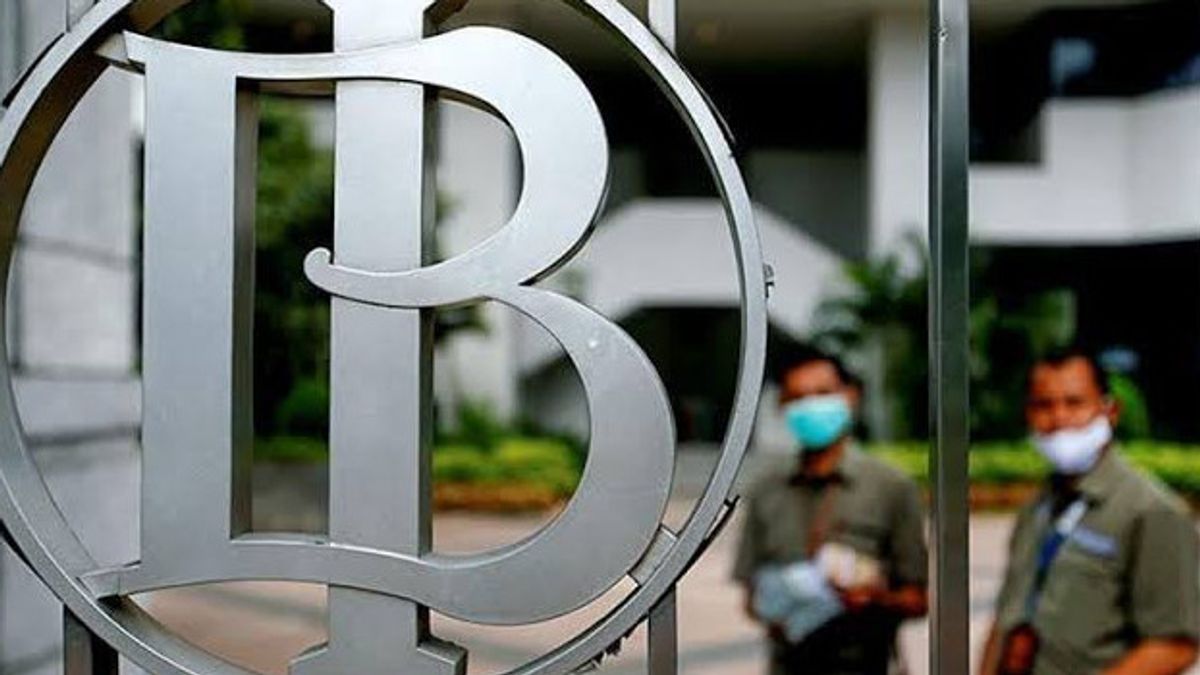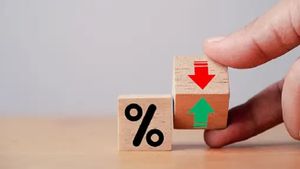JAKARTA - DCFX Futures analyst Lukman Leong assessed that Bank Indonesia's (BI) move to raise the benchmark interest rate by 50 basis points to 5.25 percent in order to maintain rupiah stability has confused the market.
"I think this makes the market confused, because inflationary data shows deflation, or inflationary pressure is starting to subside. However, BI is doing this to maintain the rupiah, intervene, and is worried if the impact will be on the economy," Lukman explained, quoted on Tuesday, November 22.
With inflation data starting to subside, BI should have focused more on handling inflation, not currency. The rupiah currency, said Lukman, is indeed weakened but will not be below IDR 16,000.
"I think BI will remain focused on rising interest rates based on inflation expectations. Indeed, I think the currency is stable, slightly weakened within reasonable limits. Which countries can maintain their currency today," he said.
In line with Lukman, Bank BCA economist David Sumual said the weakening of the rupiah was still within reasonable limits.
"The pressure on the rupiah is actually still relatively manageable compared to other Emerging Market countries, many of whose weaknesses are double digits," said David.
Next month, the American Central Bank, the Fed will hold a final meeting. It is estimated that the action of raising the crazy interest rate will end.
"Good sign could be a corrected US dollar. But this is still projected," said David.
David added that monitoring the Fed's action, the spread between the rupiah interest rate and the US dollar must be maintained attractively in the midst of the continued expectations of an increase in the Fed rate. Then with the benchmark interest rate rising, it has an impact on credit, business growth, and imports. Meanwhile, people can'securate' their money so as not to be eroded by inflation. SECURE their assets in a liquid place while waiting for the trend of increasing high interest rates to be completed.
"The end of the high interest rate era, perhaps in the next six months it is clear, will stop, where the investment will be very good in stocks," said David.
Furthermore, David added, with the weakening of the rupiah against the dollar, inflation will emerge in terms of imports. Then entrepreneurs who are still shopping for imports with dollars, must be able to secure their value.
Meanwhile, Bank Permata Chief Economist Josua Pardede assessed that the increase in interest rates was a pre-emptive step to deepen inflation expectations so that core inflation in 2023 returned to the BI inflation target.
"The decision to increase interest rates is also aimed at maintaining the stability of the rupiah exchange rate which is estimated to be still influenced by sentiment towards the Fed interest rate," he explained.
According to him, the increase will also affect the domestic economy. Some of the sectors affected are investment in the business sector and public spending.
"It has potential to have an impact on the domestic economy, especially in terms of cost of borrowing, which will further affect public consumption and investment in the business sector," he added.
However, the adjustment of bank interest rates, especially credit interest rates, including the interest rate of people's ownership loans (KPR) is expected to have a gap. The banking sector will consider bank liquidity conditions and varying banking credit risks.
"But in general, the lending rate has not shown a significant increase and it is estimated that the new bank loan interest rate adjustment will be indicated in the first semester of 2023," he said.
Fortunately, the increase in interest rates was also accompanied by macroprudential policies. The policy plays a role in preventing and reducing systemic risks, encouraging balanced and quality intermediation functions, increasing the efficiency of financial systems and access to finance in maintaining financial system stability (SSK), and supporting monetary stability and payment system stability.
"Although BI's benchmark interest rate has increased and further has the potential to encourage domestic economic moderation in macroeconomic coverage, BI also continues to continue a loose macroprudential policy until the end of 2023, namely down payment (DP) for motor vehicle loans (KKB), which is 0 percent," he said.
"And the loan to value of mortgages is 100 percent, which means that people who are new to taking mortgage credit or KKB have the opportunity to pay down DPs that tend to be low and are possible for 0 percent depending on the risk appetite of each bank," he continued.
According to Josua, it is undeniable that the increase in interest rates will affect credit demand. However, BI's macroprudential policy is expected to reduce the impact of the increase in interest rates so that credit growth can be quite solid.
Josua based the analysis on non-performing loans (NPL) indications for consumption loans including NPL KPR and NPL KKB which tend to remain low and even lower than productive credit and total credit.
"In general, the increase in interest rates has the potential to limit credit demand, but it is hoped that with the BI policy mix where macroprudential policies remain loose, it is hoped that the momentum of credit growth, including KKB and mortgage loans, is expected to remain solid," he concluded.
The English, Chinese, Japanese, Arabic, and French versions are automatically generated by the AI. So there may still be inaccuracies in translating, please always see Indonesian as our main language. (system supported by DigitalSiber.id)








